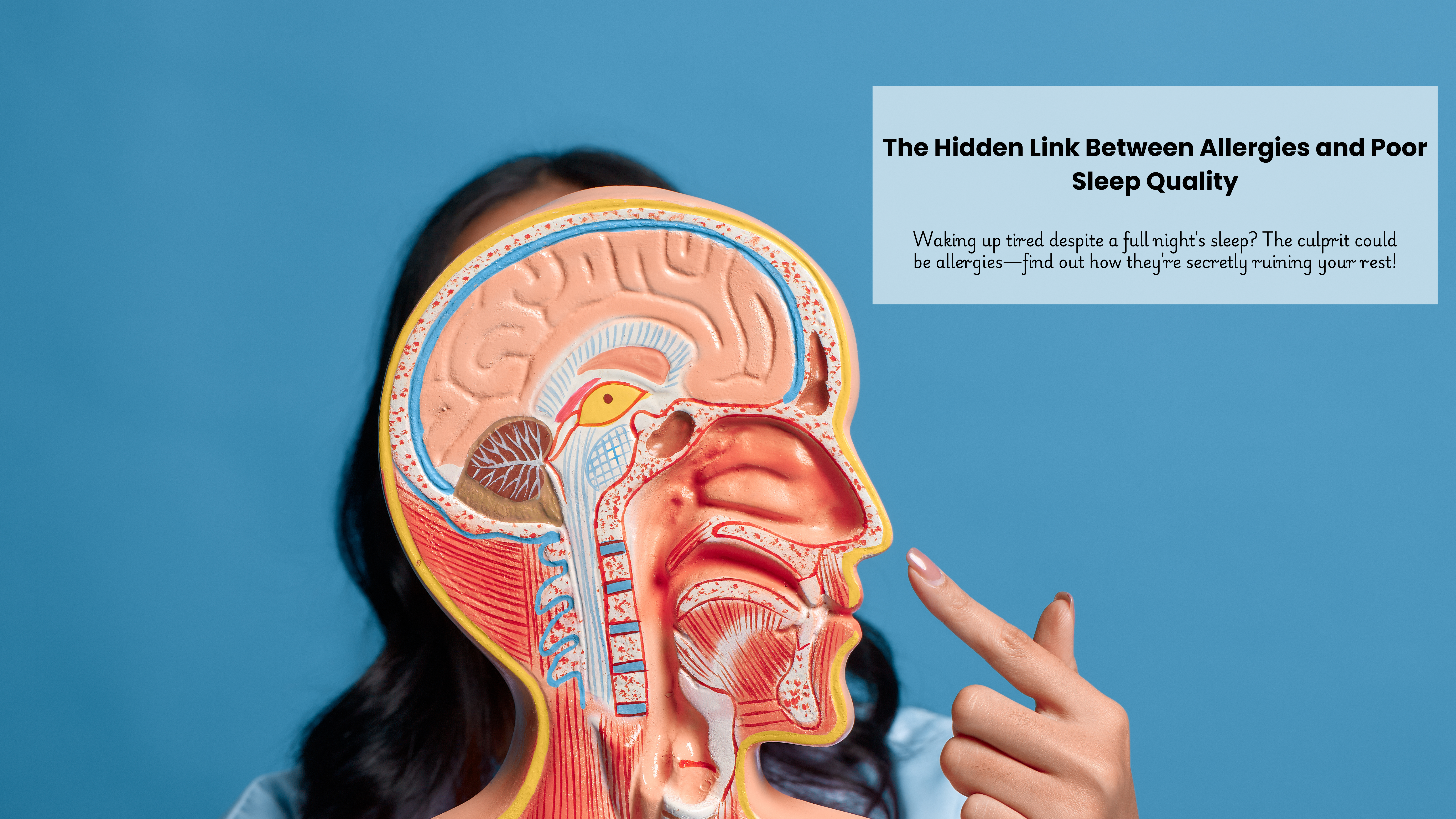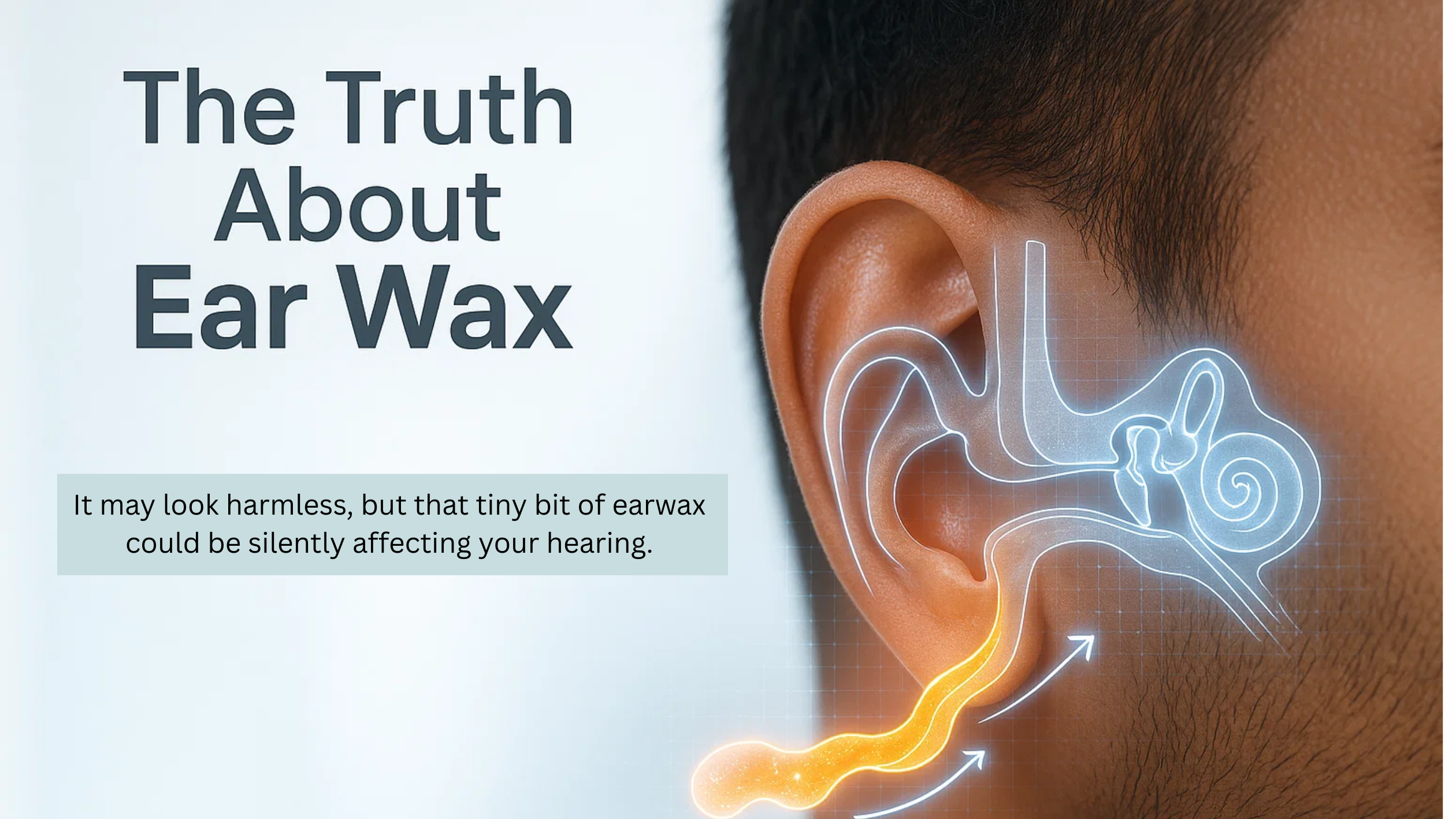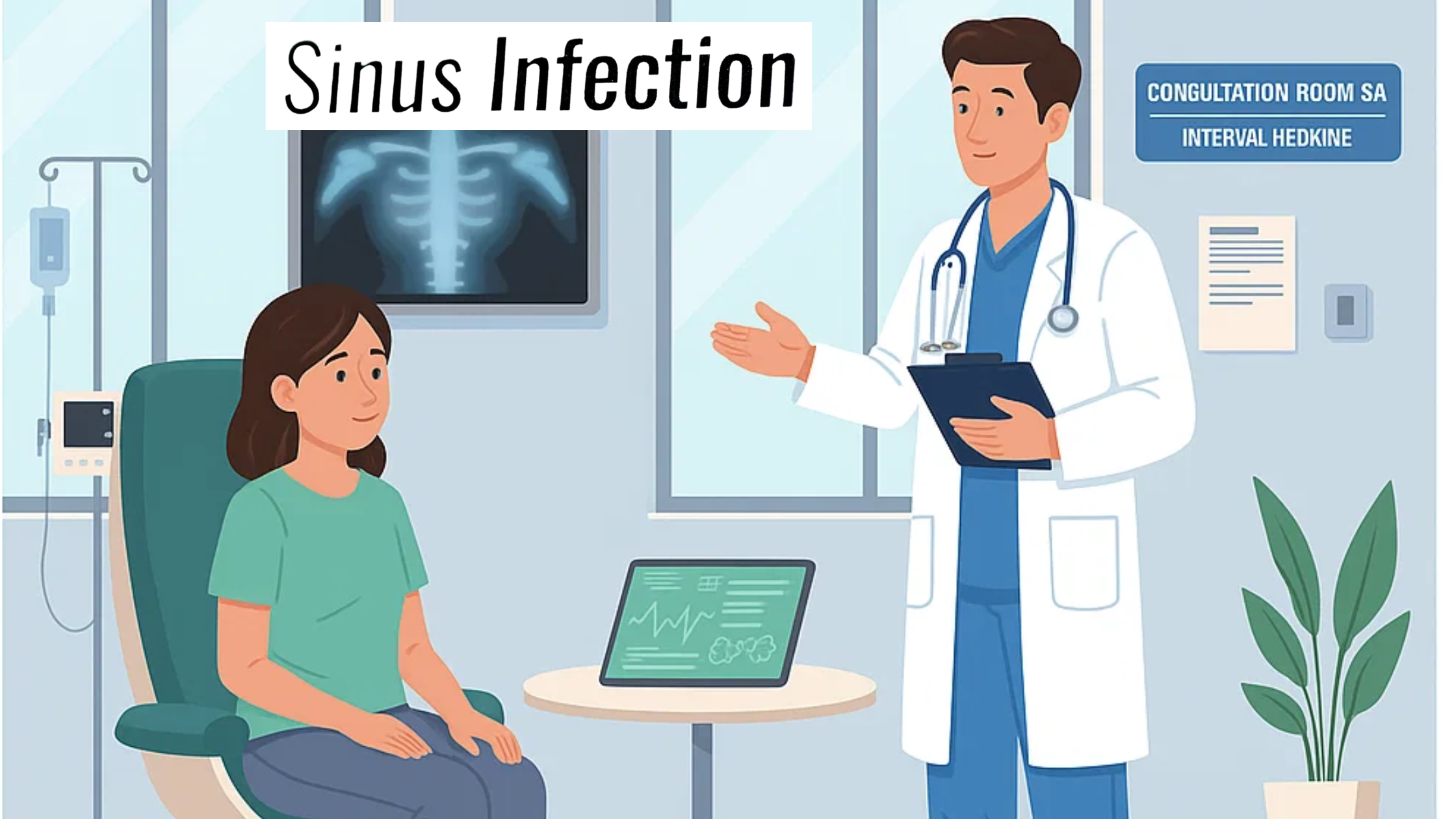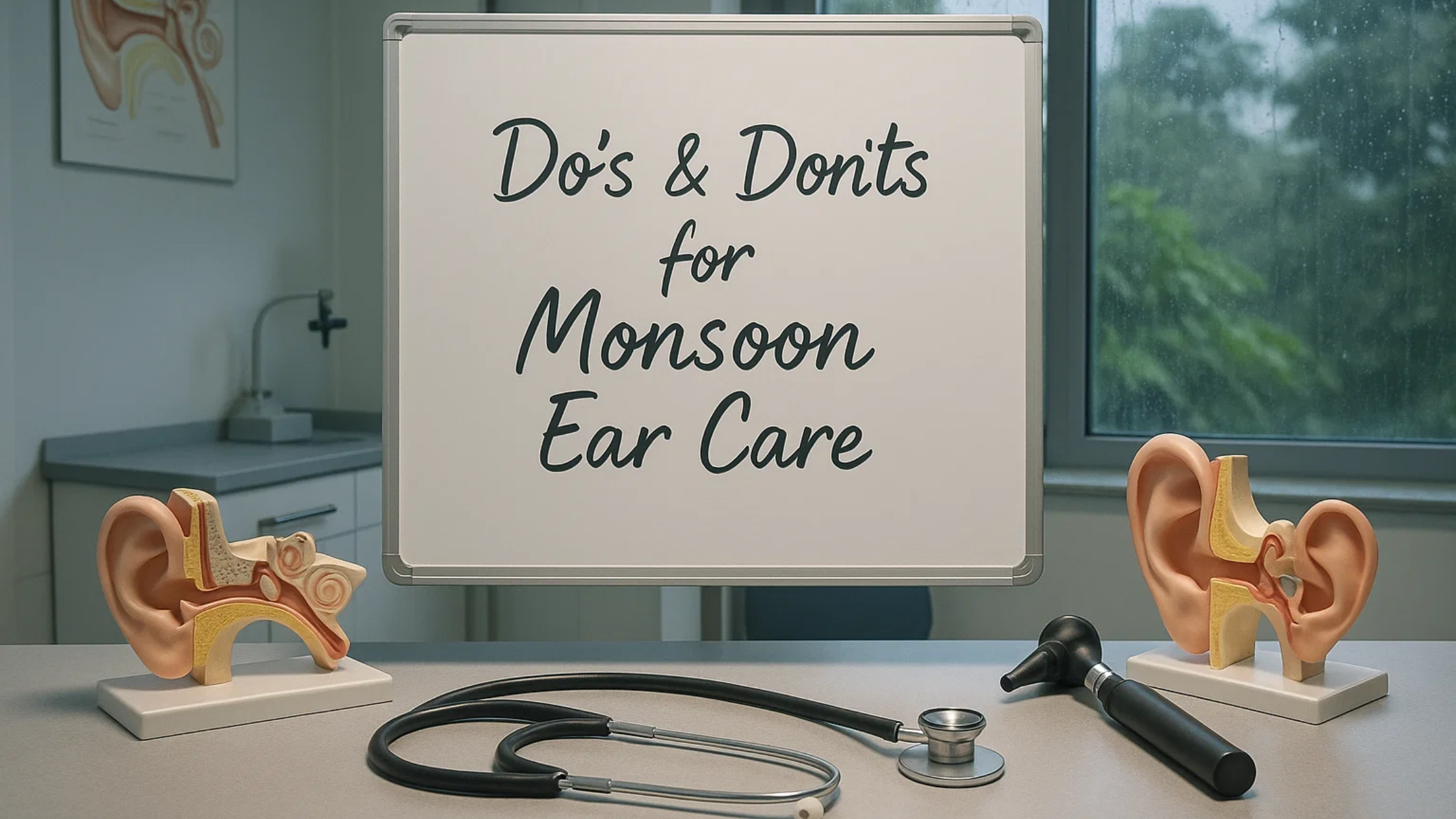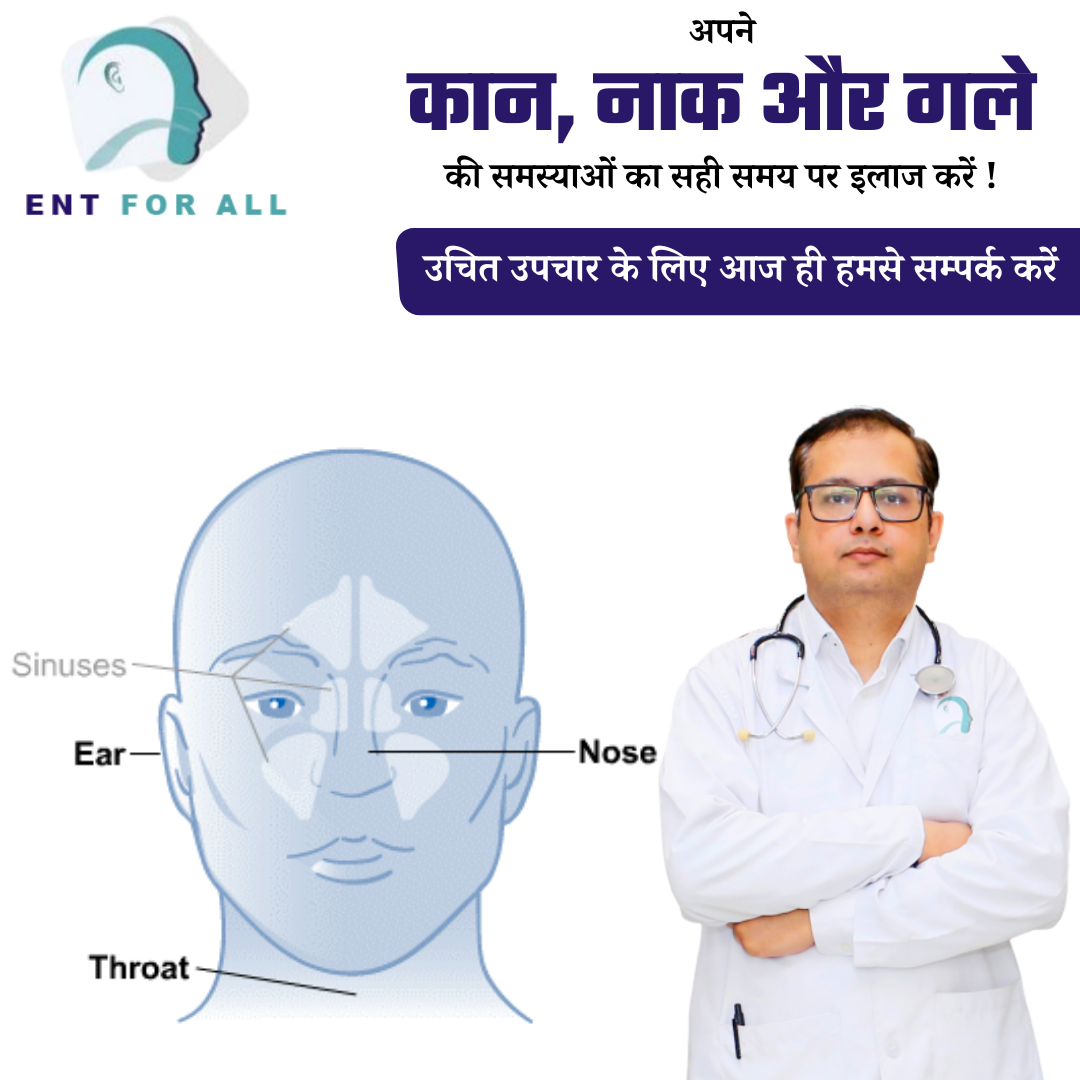Do you often wake up feeling groggy, congested, or unrested? If so, your allergies might be to blame. Many people suffer from allergies without realizing how much they impact their sleep quality. From nasal congestion and sneezing to itchy eyes and throat irritation, allergy symptoms can disrupt sleep cycles, making it difficult to get the rest your body needs.
Understanding the connection between allergies and sleep is crucial because poor sleep quality affects overall health, leading to fatigue, decreased productivity, and a weakened immune system. In this blog, we’ll explore how allergies interfere with sleep, the science behind these disruptions, and practical solutions to help you sleep better despite allergies.
How Allergies Affect Sleep
Allergies trigger a range of symptoms that make falling and staying asleep challenging. The most common include:
✔ Nasal congestion – Blocked airways make it difficult to breathe normally, leading to mouth breathing and snoring.
✔ Sneezing and itchy throat – Constant irritation can prevent you from falling into deep sleep.
✔ Watery, itchy eyes – Discomfort can cause frequent waking during the night.
✔ Postnasal drip – Mucus buildup can trigger coughing and throat irritation, disrupting sleep.
When allergies are severe, they can cause sleep deprivation, leaving you feeling exhausted and irritable the next day. But what exactly happens inside your body when allergies interfere with sleep?
The Science Behind Allergies and Sleep Disruptions
When allergens like pollen, dust mites, or pet dander enter your body, your immune system overreacts, releasing histamines—chemicals that cause inflammation, swelling, and mucus production.
How Histamines Disrupt Sleep
✔ Histamines trigger allergy symptoms such as congestion, sneezing, and irritation—making restful sleep nearly impossible.
✔ These chemicals also stimulate brain activity, preventing your body from entering deep, restorative sleep cycles.
The Connection Between Allergies and Sleep Apnea
✔ Allergic rhinitis (nasal inflammation caused by allergies) can block airways, leading to snoring and sleep apnea—a condition where breathing repeatedly stops during sleep.
✔ Sleep apnea worsens sleep quality and can increase the risk of high blood pressure, heart disease, and daytime fatigue.
Common Allergens That Disrupt Sleep
Not all allergies are the same—some are seasonal, while others are present indoors year-round.
🛏 Indoor Allergens:
✔ Dust mites – Tiny insects found in bedding, carpets, and furniture.
✔ Pet dander – Shredded skin flakes from cats and dogs.
✔ Mold spores – Thrive in humid environments like bathrooms and basements.
🌿 Seasonal Allergens:
✔ Pollen from trees, grass, and flowers – Peaks in spring and fall, triggering seasonal allergic reactions.
🍽 Food Allergies & Sleep Issues:
✔ Certain foods, such as dairy, nuts, and gluten, can cause allergic reactions that lead to acid reflux, bloating, and breathing difficulties at night.
If you notice allergy symptoms worsening at night or during specific seasons, identifying the trigger is the first step in improving your sleep quality.
Symptoms of Allergy-Related Sleep Problems
Allergy-induced sleep problems often go unnoticed, as people may not connect their symptoms to poor sleep.
Here are common signs that allergies are affecting your sleep:
✔ Increased nighttime congestion and difficulty breathing.
✔ Frequent waking up due to sneezing, coughing, or throat irritation.
✔ Loud snoring caused by nasal blockage.
✔ Waking up with dry mouth or sore throat (from mouth breathing).
✔ Feeling excessively tired and drowsy during the day.
Ignoring these symptoms can lead to chronic sleep deprivation, which negatively impacts overall health.
Long-Term Impact of Allergies on Sleep and Health
Poor sleep quality due to allergies can lead to serious health consequences, including:
✔ Weakened immune system – Sleep deprivation makes you more prone to infections and illnesses.
✔ Mood disorders – Chronic poor sleep increases the risk of anxiety, stress, and depression.
✔ Memory and concentration problems – Poor sleep affects cognitive function and productivity.
✔ Higher risk of chronic diseases – Long-term sleep issues contribute to heart disease, obesity, and diabetes.
To avoid these issues, it’s essential to manage allergies effectively and adopt habits that promote better sleep.
Effective Ways to Improve Sleep Despite Allergies
🏠 Allergy-Proof Your Bedroom
✔ Use hypoallergenic bedding and pillow covers to block dust mites.
✔ Wash sheets and pillowcases weekly in hot water.
✔ Invest in an air purifier with a HEPA filter to remove allergens from the air.
✔ Keep pets out of the bedroom to reduce exposure to pet dander.
💊 Medications & Natural Remedies
✔ Antihistamines (e.g., Loratadine, Cetirizine) help relieve sneezing and congestion.
✔ Nasal sprays (steroid-based) reduce inflammation in the nasal passages.
✔ Steam inhalation clears mucus and relieves sinus pressure.
✔ Saline nasal rinses (like a neti pot) flush out allergens from the nasal passages.
🛠 Lifestyle Changes to Minimize Allergen Exposure
✔ Keep windows closed during high pollen seasons.
✔ Shower before bed to remove pollen and dust from your skin and hair.
✔ Maintain low humidity indoors to prevent mold growth.
✔ Avoid strong scents or perfumes that may trigger allergic reactions.
By incorporating these preventive measures, you can significantly reduce nighttime allergy symptoms and improve sleep quality.
When to Seek Medical Help
If allergies continue to disrupt your sleep despite taking preventive measures, it may be time to consult a doctor.
Signs You Should See an Allergist or ENT Specialist
✔ Severe nasal congestion that doesn’t improve with over-the-counter medications.
✔ Signs of sleep apnea, such as gasping for air during sleep.
✔ Persistent fatigue and lack of focus due to sleep deprivation.
✔ Recurrent sinus infections caused by untreated allergies.
Treatment Options
✔ Immunotherapy (Allergy Shots) – Gradually reduces sensitivity to allergens over time.
✔ Prescription medications for severe allergic reactions.
✔ Advanced nasal surgeries (for those with structural blockages and worsening allergies).
Seeking professional help ensures that allergy-related sleep disturbances don’t turn into long-term health problems.
Conclusion
If you’ve been struggling with poor sleep and can’t seem to pinpoint the cause, your allergies might be the hidden culprit. From nasal congestion and snoring to constant waking at night, allergies can significantly disrupt sleep quality and overall well-being.
🌟 Take Control of Your Sleep & Health Today!
Don’t let allergies disrupt your sleep! Identify your triggers, make simple lifestyle changes, and seek expert care if needed. Dr. Sushant Joshi, a renowned ENT surgeon, leads ENT FOR ALL, Rajasthan’s top ENT clinic, offering specialized treatments for allergies, snoring, and sleep issues. Take the first step toward better sleep and health today!
Also Read:- How To Tackle Allergies or a Sinus Infection Problem?

